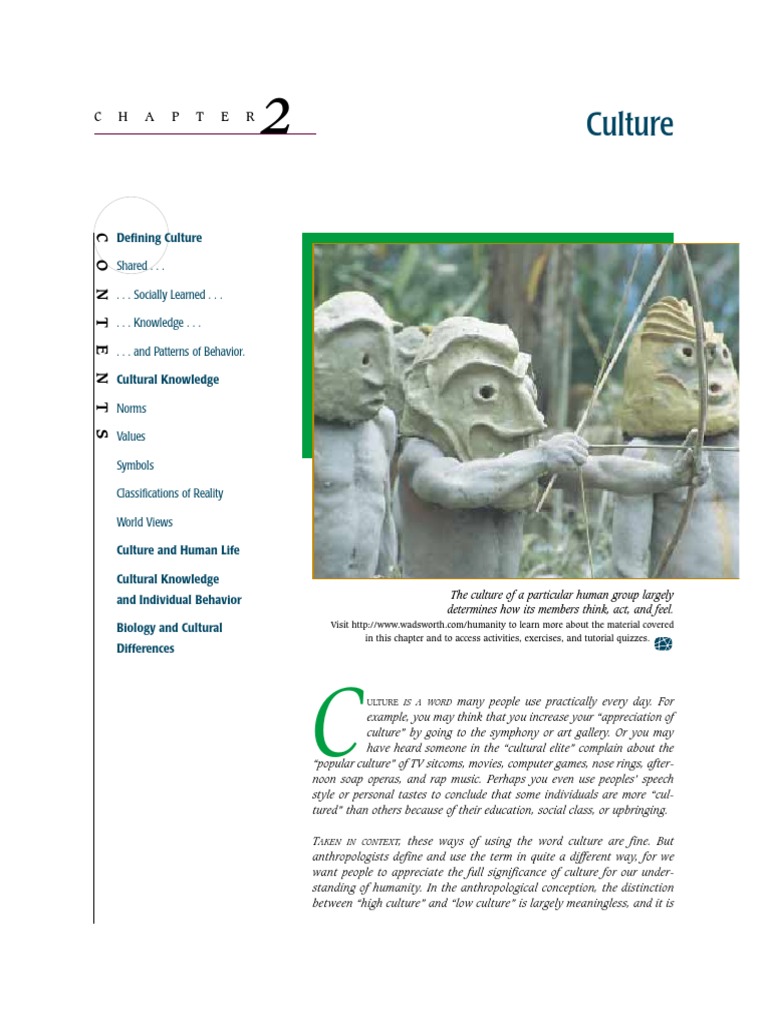The term “culture” evokes a multitude of interpretations across various disciplinary landscapes, yet within the realm of anthropology, it stands as one of the most contested concepts. The ongoing debate surrounding the definition of culture is not only a reflection of anthropological inquiry but also a window into the complexities of human society. This discourse reveals deeper philosophical, methodological, and ethical undercurrents that persistently engage scholars. The intricate nature of culture necessitates a thorough examination of the factors that contribute to its elusive definition, exploring its historical evolution, philosophical underpinnings, and practical implications in the field.
Historically, the term “culture” emerged prominently in the 19th century, as anthropologists endeavored to categorize human societies. Edward B. Tylor, often regarded as the father of cultural anthropology, defined culture in his seminal work “Primitive Culture” (1871) as “that complex whole which includes knowledge, belief, art, morals, law, custom, and any other capabilities and habits acquired by man as a member of society.” This definition, while comprehensive, has been subjected to extensive scrutiny. Critics argue it risks conflating the material and immaterial aspects of human life, leading to sentimentality or reductionism. Thus, the foundational elements of what constitutes culture invite ongoing discourse, challenging anthropologists to reconcile historical perspectives with contemporary realities.
The philosophical dimensions of the culture debate are also significant. To some scholars, culture embodies the practices, symbols, and narratives that define the human experience. The interpretivist school, heavily influenced by figures such as Clifford Geertz, posits that culture should be understood as a system of meanings. Geertz’s notion of “thick description” emphasizes the importance of contextualizing cultural practices within their specific social environments. This perspective fosters a rich tapestry of understanding but introduces another layer of complexity; does culture exist as an external entity, or is it perpetually constructed and renegotiated through social interactions? The answer to this question has profound implications for how anthropologists engage with their subjects and ultimately breach the anthropological gaze.
Moreover, the terminological ambiguity surrounding culture amplifies the debate. For instance, distinctions between “high culture” and “popular culture” elicit discussions regarding class, status, and power. The implications of these classifications bring forth question about elitism and cultural hegemony, as articulated by theorists such as Antonio Gramsci. As culture is both a site of struggle and negotiation, anthropologists grapple with notions of agency and the role of individuals within broader cultural frameworks. This leads to a nuanced consideration of culture as a dynamic and living entity, alive with conflict, innovation, and adaptation.
The practical implications of defining culture also spark contention within the discipline. As anthropologists engage with diverse societies, their interpretations can inadvertently influence the very subjects they study. This concern is heightened in an era characterized by globalization and transnationalism, where the cultural boundaries have become increasingly porous. With the rise of digital communication and the internet, the dissemination of cultural practices occurs at an unprecedented rate. Thus, defining culture necessitates acknowledging those fluid exchanges and the ensuing identities that emerge from them. Anthropologists must be vigilant in their approach, ensuring they do not impose rigid definitions that may overlook the richness of lived experiences.
The evolution of cultural relativism further complicates the discussion on definitions. Anthropologists have historically advocated for cultural relativism—the idea that one should understand a culture on its own terms, without ethnocentric bias. This epistemological stance encourages greater sensitivity and understanding of cultural practices, yet it also raises ethical dilemmas. For instance, how does one navigate the tension between cultural relativism and universal human rights? In practice, applying culture as a framework for ethical decision-making demands a careful balancing act, prompting anthropologists to critically assess the implications of their definitions on both the communities they study and the broader global context.
Central to the debate surrounding culture is the recognition of cultural identity as inherently multifaceted and intersectional. Contemporary anthropologists increasingly acknowledge that individuals operate within a constellation of identities, resulting in cultural expressions that are not monolithic but rather mosaic-like. This perspective compels scholars to address intersectionality as a critical component of cultural analysis, examining how race, class, gender, and sexuality inform cultural practices. Such an approach leads to rich and nuanced understandings of culture that surpasses simplistic definitions and encapsulates the complexity of human life.
Finally, the persistent debates surrounding the definition of culture reflect a profound human fascination with the tapestry of existence. Culture serves as both a mirror and a lens through which we examine our collective experiences; it beckons anthropologists to ponder the essence of humanity itself. This intrinsic quest for understanding fuels academic inquiry and fosters a deeper appreciation for diversity in human expression. Rather than seeking a singular definition, anthropologists are drawn to the multiplicity of meanings that culture encompasses—an exploration that continuously shapes and reshapes the discipline itself.
In conclusion, the debate surrounding the definition of culture remains vibrant and contentious within anthropological circles. As scholars grapple with historical legacies, philosophical inquiries, and ethical considerations, the need for a comprehensive understanding of culture persists. This ongoing dialogue not only deepens our understanding of human societies but also reflects the very essence of anthropology as a discipline—one that seeks to bridge the chasms of difference and illuminate the shared experiences that unify us all. The complexity of culture, therefore, is not merely a challenge to be resolved but a vital component of the anthropological endeavor that inspires an ever-evolving exploration of what it means to be human.
